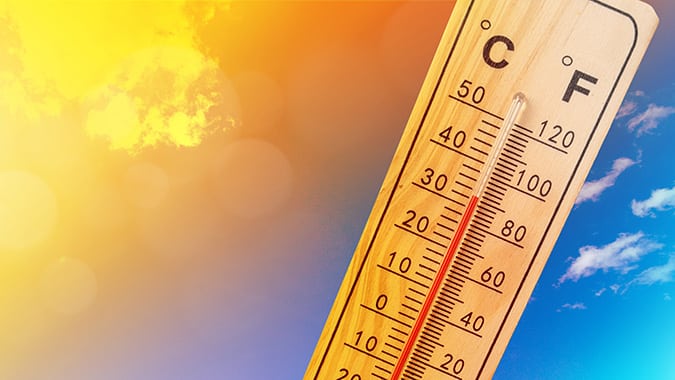The federal government has released a proposed rule that requires employers to develop heat-related emergency response plans, train employees and supervisors on signs of heat illness, and provide paid rest breaks, shade, and water to protect workers in extreme heat.
The proposed rule, released by the U.S. Occupational Health and Safety Administration (OSHA) on Tuesday, would not apply to sedentary or remote employees, emergency responders, or employees in indoor workplaces where the temperature is kept below 80 degrees Fahrenheit.
The OSHA proposal would create a range of new protections based around two separate heat index thresholds. At the first trigger, when the combined temperature and relative humidity hits 80 degrees, employers would be required to provide drinking water and rest areas that workers could use if needed.
Employers would also be required to have a heat acclimatization plan for new workers or those returning to the job site after being away for 14 days or more. These employees would have their workload increased gradually so their bodies could adjust to the heat.
Additional protection would kick in when the heat index hits 90 degrees. At that point, employers would also have to provide a minimum 15-minute paid rest break every two hours. They would also have to have a system in place for monitoring their workers for signs of heat-related illness or symptoms.
Before the proposed rule can become a final regulation, it must undergo a public notice and comment period that will be set once the draft rule is officially published in the Federal Register in the coming days.
NJBIA Vice President of Government Affairs Elissa Frank said NJBIA is gathering input from its members on the proposed OSHA heat rule and will be submitting comments on behalf of the business community. Frank can be contacted at efrank@njbia.org.
NJBIA has opposed state legislation A-3521/S-2422, that would mandate expedited rules to address heat stress for employees because the forthcoming federal rules will apply one standard nationwide addressing heat stress in the workplace. The New Jersey legislation is overly broad and its one-size-fits-all provisions would undermine the ability of businesses in the Garden State to stay open during summer heat waves, she said.
The state legislation was released by Senate and Assembly committees but had not yet made it to the full Senate and Assembly for floor votes before the Legislature recessed for the summer.




